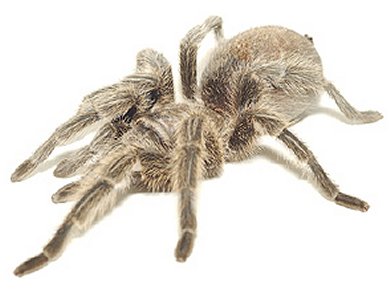Insect pests destroy 10–14 % of world crop yields every year. Chemical insecticides offer only a partial solution to this problem as many insect species have become resistant to these compounds. Although the venom of spiders contains many insecticidal toxins, most of them are not orally active and, therefore, they are not useful as insecticides.
Margaret Hardy and colleagues, University of Queensland, Australia, managed to identify an orally active insecticidal toxin in the venom of the tarantula Selenotypus plumipes Pocock. The new molecule, named OAIP-1, is a peptide with 34 residues that belongs to a class of disulfide-constrained peptides known as knottins. OAIP-1 was shown to be highly lethal to termites and mealworms and it was more potent than several synthetic insecticides in killing the pernicious cotton bollworm Helicoverpa armigera.
Owing to its rapid insecticidal action and its easy chemical production, OAIP-1 could be used as a foliar spray to treat crop plants resistant to conventional insecticides.
- Isolation of an Orally Active Insecticidal Toxin from the Venom of an Australian Tarantula,
Jose M. Sanchez-Ruiz, Margaret C. Hardy, Norelle L. Daly, Mehdi Mobli, Rodrigo A. V. Morales, Glenn F. King,
PLoS ONE 2013, 8, e73136.
DOI: 10.1371/journal.pone.0073136




